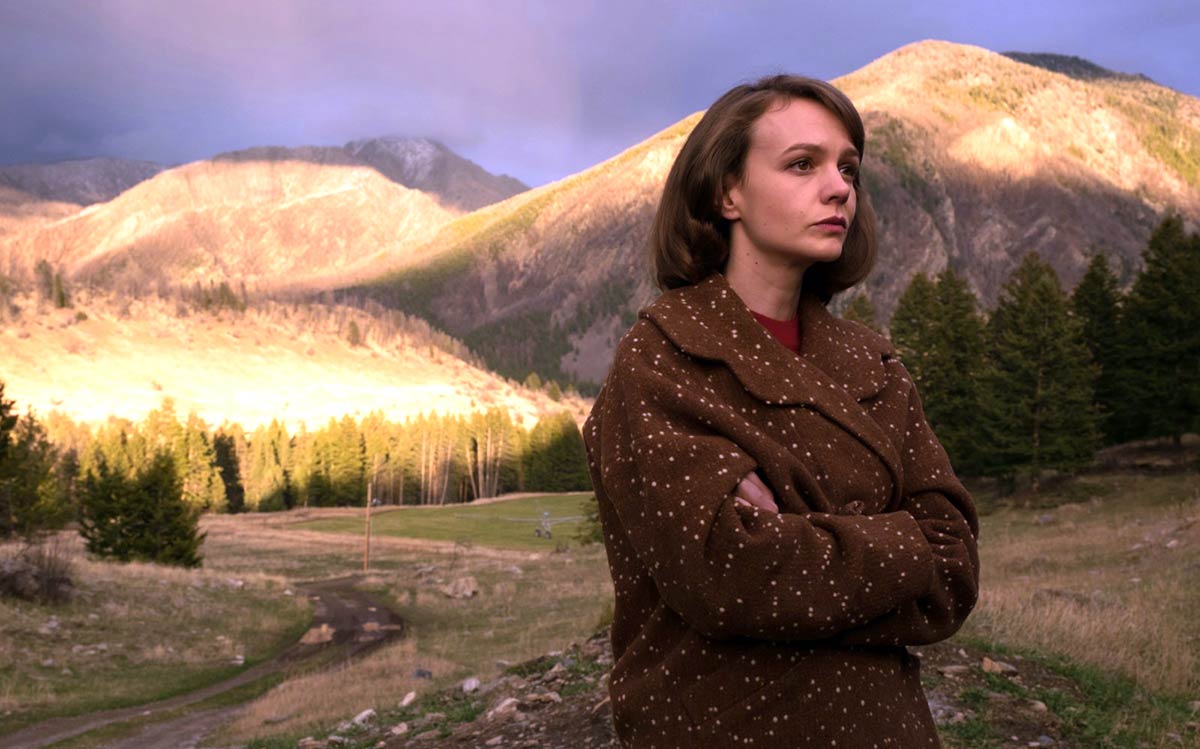Carey Mulligan wholly deserves awards attention in Paul Dano’s exquisite directorial debut “Wildlife.” As Jeanette, the self-destructive Middle America housewife that tries to break free from that time’s conventions of what a married woman should and shouldn’t do, Mulligan quietly expresses disillusionment, frustration and then, unabashed self-interest of her needs over her marriage and family. But it’s done so with a grace that we empathize with her. She’s not selfish, she’s a human being whose unfulfilled. Dano’s movie rarely spells this out, but it’s all communicated through powerfully interior performances and rock solid, minimalist filmmaking.
READ MORE: Carey Mulligan Shines In ‘Wildlife’ [Review]
Once she’s seemingly abandoned by her husband Jerry (Jake Gyllenhaal) who decides to go off and fight forest fires with local volunteers, all gloves are off; Jeanette ends up rebelling against a system that’s meant to perversely punish women to the ground. She starts an extra-marital affair she has with a small-town millionaire (Bill Camp), and it’s all seen through the eyes of her 14-year-old son Joe (Ed Oxenbould)
READ MORE: Zoe Kazan Sets Record Straight On ‘Buster Scruggs’ Always Being A Movie [Interview]
This masterfully directed and photographed picture has Dano, who worked with his partner Zoe Kazan on the mature and subtle screenplay, showing a real knack for distilled, detached framing that forces you to lean in and pay attention to the actors and all the unspoken glances and looks that speak volumes.
READ MORE: 56 Must-See Films: The 2018 Fall Movie Preview
However, it’s Carey Mulligan‘s live-wire performance as Jeanette that makes the film truly sting in ways too uncomfortable to look at but too brilliant to look away from. It’s one of the most fascinating and fully-fleshed characters you will see at the movies this year. I recently spoke to the actress about her character’s motivations, the final shot, and the parallels to today’s world. “Wildlife” is in theaters now.
You’ve mentioned that it was frightening to play a character like Jeanette, can you expand on that?
There’s a real danger in playing out of control. Exposing those kinds of emotions to an audience—it can be messy. There was such an intricate journey that Paul and Zoe had mapped out in the writing and I could see in reading it how it might go, but I couldn’t imagine how it could be pulled off. There were so many twists and turns— that nimble work is something that takes quite a bit of preparation. I just thought I could completely fuck this up [laughs]. It’s very rare to get such a complicated, three-dimensional, rich, complex character and particularly for a woman. So, all of that is amazing to have on the page, but that’s also tricky. I was also intimidated because two of my very good friends had also written it.
When I was doing [Netflix’s] “Collateral” and [writer] David Hare would show up on set and I would just shrink to the corner. Suddenly you are so aware that everything you are doing was written by someone that has a very clear idea in their mind and imagined it to be. I shrink away at those moments. Paul and Zoe were working this script out for years, I was part of their process for just a couple of moments, so I kept thinking I just hope I don’t fuck this [laughs].
She’s got this sort of ’50s housewife veneer down pretty solidly and the rules of that game are that you don’t crack and that you smile and support your husband no matter what. You’re not allowed to have any frustrations. So, when he finally breaks his end of the deal and just goes to fight the forest fires she snaps. I think there’s been a pressure build-up on him being a reliable and secure husband and that she wants to be given a chance at a life that she doesn’t have.





